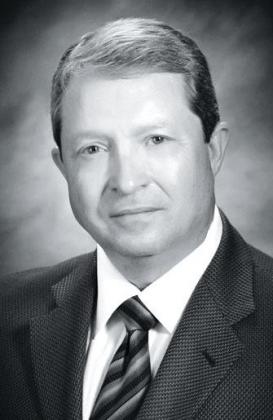
Steve Gardes
The recent financial clash between Gov. John Bel Edwards and House Republican leaders over the Revenue Estimating Conferences $43 million of revenue projections has generated intense scrutiny from the Edwards administration, legislators,and even the media.
If the House does not approve the projections, Edwards will not be able to use the projected revenue in his upcoming state budget, and he claims he will not have the money needed for teacher pay raises in 2019 (an election year). Edwards claims this scrutiny is unprecedented and is only a political move, whereas the House says this is only fiscal prudence in light of recent economic volatility (i.e. recent 25 percent drop in oil prices, etc.).
One can only hope that the same level of “budget scrutiny” will be used for proposed spending on Medicaid, which has been Louisiana’s top fiscal priority for the last several years. Maybe the Louisiana Department of Health will even be required to submit budget projections for Medicaid spending like the Revenue Estimating Conference does, and like the Task Force on Structural Changes in Budget and Tax Policy recommended in their 2016 report to the state legislature ?
Speaking of fiscal priorities and budget projections, what should Louisiana’s priorities be? Why is it important for LDH to start submitting five-year projections on Medicaid spending? In order to answer those questions, consider the following facts:
— Louisiana’s portion of Medicaid spending has increased $1.6 billion per year over the last 8 years, increasing from $1.7 billion to $3.3 billion per year. That is an average increase of $200 million every year, and if what you spend most of your money on is any indication —Medicaid was by far the state’s top fiscal priority over this period of time.
— Teachers meanwhile have not received a pay raise since 2013, and their compensation is now $8,300 below the U.S. average teacher pay. Edwards is proposing a small $1,000 per year increase in teachers’ salaries, which will only cost the state $50 million per year. He wants to pay for this from new revenue rather than to cut spending in other areas.
— The Legislative Auditor continues to find potential fraudulent activity in the Medicaid program that could be costing Louisiana well over $100 million per year.
— Increasing Medicaid costs were at the center of state budget battles all across America. In 2017, 22 states faced budget shortfalls and at least 10 could not agree on a new budget before the start of their next fiscal year. In the past legislators were willing to cut funding for education, transportation, police, but rarely to Medicaid.
— According to CMS (Centers for Medicare & Medicaid Services) projections, Medicaid’s annual cost for Louisiana is projected to surpass $6.1 billion by 2026 — which equates to approximately an increase of $300 million per year for Louisiana taxpayers. Today the state is choking on its $3.3 billion annual cost; $6.1 billion annually will be sure death.
— Teachers all across America are facing severe discipline problems with their disadvantaged students. Over 75 percent of these students come from homes where there is no father as out of wedlock childbirths have exploded since the passing of the Great Society welfare programs in 1965. With their classrooms becoming war zones, and their compensation packages being frozen, teachers in several states went on strike this year.
In summary, Louisiana’s spending on Medicaid may be increasing $300 million every year (with a significant amount being fraudulent spending) such that we cannot afford to pay our teachers a $1,000 raise next year. Furthermore, our teachers are being forced to bear the weight of social problems created by failed government policies — while at the same time our political leaders are choosing to cut back on teacher pay so that they can expand Medicaid. Is it possible that we have our fiscal priorities in the wrong place?
Steve Gardes is a certified public accountant (CPA) and certified valuation analyst (CVA) with over 40 years of public accounting experience.
